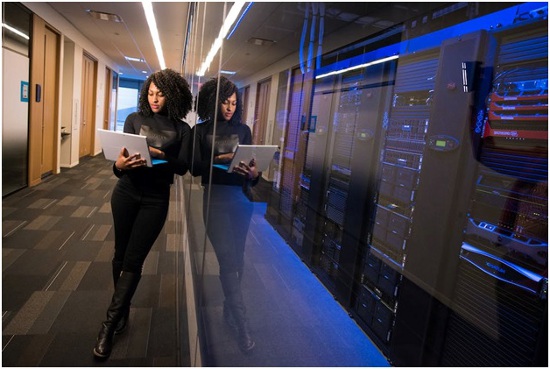No matter how successful a business is, it must always be forward-thinking so that it can meet future challenges. This is true for any part of a business – including its data.

Data storage needs change over time. A business server that can comfortably handle a business’s data needs today may be inadequate in a few years’ time. Changes in technology and changes in a business can both move a business to consider upgrading its server.
This article explains why a server upgrade may be necessary and how you can make an informed decision when it comes to choosing data storage solutions for a growing business.
1. The Right Power and Performance
When investing in a business server upgrade, performance should be among the most important things to consider. Comparing processors and memory sizes can help identify which system will offer the best performance for the price. If you’re struggling with deciding the best spec for your server, you should consult local IT companies in NJ.
Enabling virtualization can help to reduce power consumption and increase reliability. More expensive solutions may also offer better performance with improved:
- Cooling systems
- Faster processors
- More RAM
This also depends on the needs of your specific business environment. If you plan to use the company server as a platform for graphics-intensive applications, more powerful hardware is needed.
2. The Possibility of Integration
When considering investing in a business server upgrade, the possibility of integration should be carefully considered. The integration enables a business to connect the listed things below together which can greatly benefit the business:
- Platforms
- Systems
- Applications
- Networks
This allows for easier management of complex tasks by sharing functionalities, information, and data. Integration also helps provide a smoother user experience, making it simpler and easier to access, store, and manage data.
3. The Cost
Determining how much you are willing to spend is the first step in assessing the server upgrade options that are available for your business.
The budget you allocate will dictate the configuration and capacity of the new server, so make sure to accurately determine the cost. Consider the following:
- Upfront cost
- Installation
- Customization
- The workloads
Additionally, consider any specialized training or consulting that may be needed for the upgrade or to manage the server.
4. The Maintenance
When considering investing in a business server upgrade, the thing to keep in mind is the maintenance of IT services. It is important to factor in what is involved in the maintenance process, such as:
- The hourly rate
- Duration of maintenance
- Any new services are provided
You can check out these consultants from IT Consulting NJ that can provide top-notch maintenance. They can also ensure to provide the best service possible.
5. Upgrades in the Future
Future upgrades should also take into consideration scalability and compatibility with newer technologies. It’s also important to consider whether your business will require redundant systems, storage, and power.
This will ensure that business operations are never disrupted due to any hardware failure.
Investing in a Server Upgrade for Your Business
When considering a server upgrade for your business, it is important to consider all of the factors presented in this article. Ultimately, each business requires a unique approach when choosing the right server.
To find the right solution, consider engaging a trusted IT professional or consulting firm.
Did you find this article helpful? You can check out our website for more awesome content like this.
